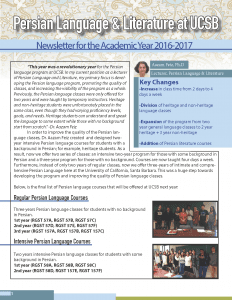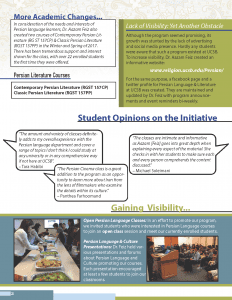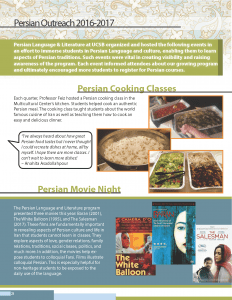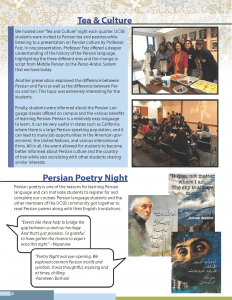There are several types of financial support available for prospective new students and continuing graduate students. The primary types of support are listed below.
DOCTORAL FELLOWSHIPS:
Fellowships are available for new and continuing students.
New Prospective Students:
For prospective students to be eligible for fellowship consideration, the online application must be submitted, the application fee paid, and all required supplemental application materials must be received by the Religious Studies Department by the admissions deadline of December 15th.
Domestic or permanent residents must complete the FAFSA student financial aid form by the deadline in early March (international students do not complete the FAFSA form). Applicants must have distinguished scholastic records and prospective students must be approved for admission. Notification of financial awards are sent out in early Spring.
Fellowship support can come from various Central Recruitment Fellowship programs (Chancellor’s Fellowship, Eugene Cota Robles Fellowship, the Regents Fellowship, and the Racial Justice Fellowship), as well as Religious Studies departmental fellowships (Rowny Fellowship – open to all students, and Cordano Fellowship – open to applicants with an interest in Catholic Studies).
Continuing Graduate Students:
The annual call for graduate student Central Continuing Fellowships consideration typically occurs in late February or early March. All required fellowship materials must be received by the deadline, and domestic or permanent residents must complete the FAFSA student financial aid form by the deadline in early March (international students do not complete the FAFSA form).
Continuing fellowship nominees are recommended by the department to the Graduate Division for consideration during this campus-wide competition. Additional continuing fellowship opportunities are available by-student nomination as well.
International Doctoral Recruitment Fellowship (IDRF): The IDRF pays non-resident supplemental tuition (NRST) in full, commencing in the student’s fourth quarter of enrollment – typically the start of their second year – and continues until the student has advanced to candidacy, provided that the student stays within their program’s official time-to-advancement standards approved by the Graduate Council and remains in good academic standing. Once advanced to candidacy, international students receive a waiver of non-resident supplemental tuition (NRST) for up to nine registered quarters while completing their degree. (Note that the IDRF does not cover NRST charged during the first year of doctoral study; however, doctoral students receive other fellowships from either the Graduate Division or their academic departments that pays this cost.)
External Funding:
Applicants are strongly encouraged to seek out national, governmental, and foundation fellowships, scholarships, grants, and loans which can be used at any university. Information about these may be obtained by writing directly to individual agencies and foundations. The department shares any information on external funding that is brought to our attention. The university Graduate Student Resource Center (GSRC) employs a Funding Peer Advisor as a resource for graduate students. In addition, the UCSB Graduate Division maintains a website that contains funding sources.
Excellence & Diversity: Student body diversity contributes greatly to a broader education for all concerned. The Graduate Division continues to pursue the goals of increasing the excellence and diversity of the graduate training programs at UC Santa Barbara. The quality of the intellectual and social experience of graduate training is enhanced by the participation of students with the widest variety of perspectives and experiences. Specific fellowships are offered to qualified individuals meeting the eligibility criteria who are from cultural, linguistic, geographic, and socioeconomic backgrounds not adequately represented in the graduate student population. Diversity at UC Santa Barbara includes underrepresented minorities, first-generation college students, students who identify as LGTBQ, women in departments with less than 25 percent women enrolled, undocumented students, graduate students who are parents, veterans or military dependents, students with disabilities, or any other students from non-traditional backgrounds.
The Religious Studies Department is committed to increasing the diversity of its graduate student body. Additionally, UC Santa Barbara has important cross-departmental programs and facilities dedicated to instilling diversity on campus.
ASE Representation: Teaching Assistants, Teaching Associates and Readers, as Academic Student Employees (ASE), are covered by a bargaining agreement. For more information: ASE website
Teaching Assistantships: Fellowship packages include teaching assistantships. All students must maintain a 3.0 GPA and have fewer than 12 units of incomplete grades to be eligible for teaching assistantships. In addition, all students whose native language is not English must pass an Oral English Language Exam prior to becoming a teaching assistant.
Teaching Associateships: Students who have received the MA degree or have advanced to PhD candidacy are eligible for teaching associate positions when available. Teaching associates are the instructor of record for their courses. Associateships (teaching a course) are considered on an individual basis with the criteria being the candidates’ teaching skills and expertise in a specialized area.
Readerships: Readerships are occasionally available in courses where the instructor needs assistance in grading the assignments and examinations.
Research Assistantships: When faculty have grant funding, they may choose to hire graduate students as research assistants on an hourly basis.
FINANCIAL AID, WORK-STUDY, AND LOANS:
Information about need-based financial aid, work-study monies, and student loans may be obtained by contacting the Office of Financial Aid and Scholarships.















